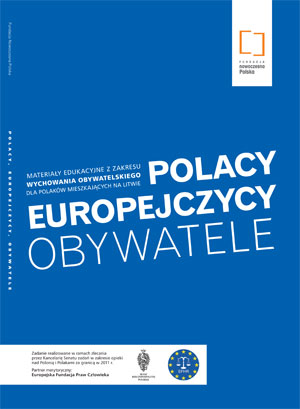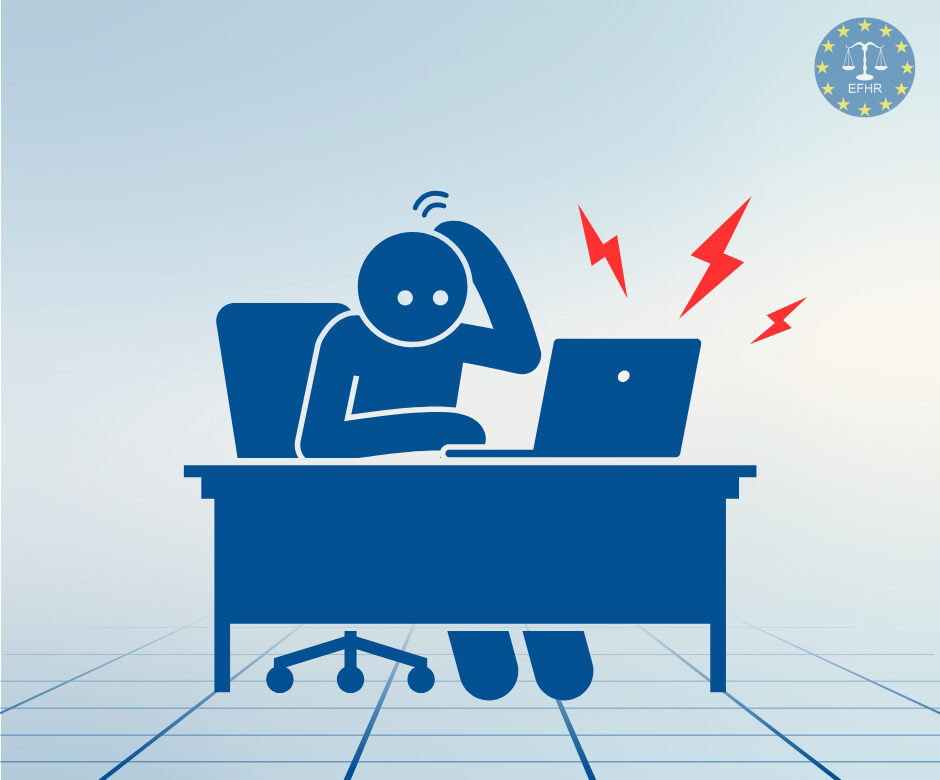- 2012/04/03
“Poles, Europeans, Citizens”. There is a new textbook of Social Studies for Polish schools in Lithuania!

On 30 March this year, European Foundation of Human Rights in association with Modern Poland Foundation could hand over new textbooks of Social Studies for Polish schools in Lithuania. These books are addressed to young people who are at 10-11 class and will provide them with a crucial minimum of knowledge which will allow students to learn about political and social problems of modern democracies along with the forms of social commitment.
As Jarosław Lipszyc writes – the chairman of Modern Poland Foundation – the idea of this textbook has been derived from the experiences of Foundation with activities which are conducted in Lithuania and as a result of collaboration with Dr. Łukasz Wardyn, European Foundation of Human Rights’ expert. On 29 June 2011, an inaugural meeting of the project “Europeans, Poles, Citizens” took place. The aim of this project was to prepare a textbook of Social Studies which was a required textbook on this subject in Polish schools in Lithuania. Evidence for this are studies over the characterization of Polish-language education from which result that – although the network of schools with Polish language is sufficient, syllabus does not cover competences concerning the training in social studies and school libraries are supplied with textbooks only in Lithuanian. This issue is very important because taking the amendment of the Act on the Education into account which was accepted by the Lithuanian Sejm and on the basis of which 13 633 students of Polish schools will be forced to study this subject only in Lithuanian. “We have assumed that effectively fight for their rights only those who have an appropriate knowledge. But it has been crucial to create an appropriate store of knowledge in order to launch such courses” – J. Lipszyc says.
How did a textbook come into being
A textbook was created in a particular way. After the first meeting of Polish and Lithuanian experts, a table of contents was together outlined. Next, Krzysztof Kowaluk and Łukasz Zamecki from Warsaw prepared these elements of chapters which are of universal value. Then, these chapters were made complete of indispensable contents for Poles living in Lithuania by Elżbieta Kuzborska and Brigida Zuromskaite from Lithuania. The editorial staff made the last selection of materials and essential cuts. As a result, a text came into being which – just like Wikipedia- has a collective author.
All materials are available under license Creative Commons – Share Alike. The license is available at website: http://creativecommons.org/licenses/by-sa/3.0/pl/. It means that everybody has the right adapt to one’s needs and to what we encourage strongly. If you think that any of these materials should be updated, corrected or require any changes – do not hesitate to do this.
“Poles, Europeans, Citizens. The educational materials in the field of social studies for Poles living in Lithuania”.
The authors
The authors of chapters
Krzysztof Kowaluk – chapter 3, 5, 6, 7, 8, 9, 10
Łukasz Zamecki – chapter 1, 2, 4, 11, 12
The authors of information on the situation in Lithuania:
Elżbieta Kuzborska
Brigita Zuromskaite
The content-related editorial staff: Magdalena Biernat, Jarosław Lipszyc, Łukasz Wardyn
The linguistics-related editorial staff: Aleksandra Sekuła
The cover project and graphics: Mariusz Smolarek
Table of contents
 Social activities
Social activities- Self-government body
- Authority
- Mass Media.
- Transformation
- Economy
- The European Union
- Globalization
- International organizations.
- International conflicts
- Social and disease exclusion
- Problems of the contemporary world
- Nation and the State
- Human Rights
- The Law
The task was conducted within the framework of directive of the Senate Office responsibilities for the care over Polish communities and Poles abroad in 2011.
Content-related partner: European Foundation of Human Rights







